Presenter Bios
Keynote Speaker

Dr. Harrison Keller
Dr. Harrison Keller is the Commissioner of Higher Education for the State of Texas. He is a sixth-generation Texan with more than two decades of experience in educational budget and policy, digital learning, senior university administration, management, fundraising, and building effective coalitions among school districts, community colleges, universities, systems, and policymakers.
Dr. Keller is a recognized innovator in policy and programs to improve college readiness and student success, especially for low-income and first-generation students. He is the founder and was Principal Investigator of the OnRamps dual enrollment initiative that provides college-level courses to tens of thousands of high school students across the state of Texas, and the Texas OnCourse initiative that works with Governor Greg Abbott’s Tri-Agency Workforce Initiative to improve secondary college and career advising across the state.
He came to the Coordinating Board from The University of Texas at Austin, where he was Deputy to the President for Strategy and Policy and a Professor of Practice. Dr. Keller also served at UT Austin as Vice Provost for Higher Education Policy and Research, and Executive Director of the Office of Educational Innovation and the Center for Teaching and Learning. Prior to coming to UT Austin, Dr. Keller was Director of Research for the Texas House of Representatives and Senior Education Advisor for the Speaker of the Texas House.
Dr. Keller has taught at Georgetown University, St. Edward’s University, and the University of Texas at Austin. He holds a bachelor’s degree in philosophy from the University of Notre Dame and an M.A. and Ph.D. in philosophy from Georgetown University. He and his wife, Gena Nivens Keller, live in Austin with their three children.
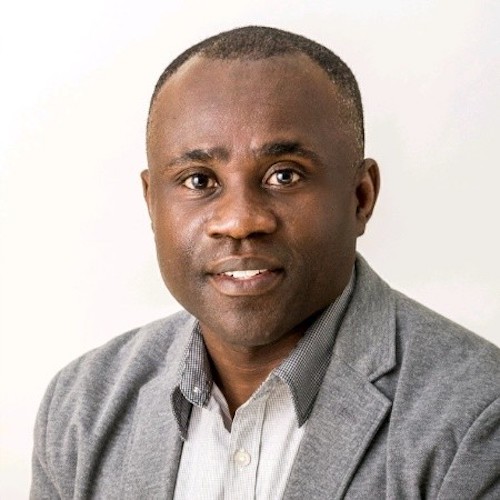
Erasmus Addae
Failure to launch: Barriers to developing certificate and degree a subscription-based competency-based education format
Dr. Erasmus Addae is the Associate Vice President of Distance Education at Austin Community College. He is tasked with leading distance education as well as other projects related to digital learning and innovation. Erasmus holds more than 18 years of experience in online learning as an administrator, consultant, and faculty member. He has helped guide policy efforts and developed strategic plans. Most recently, Erasmus served as the dean of distance learning at Austin Community College and South Texas College.
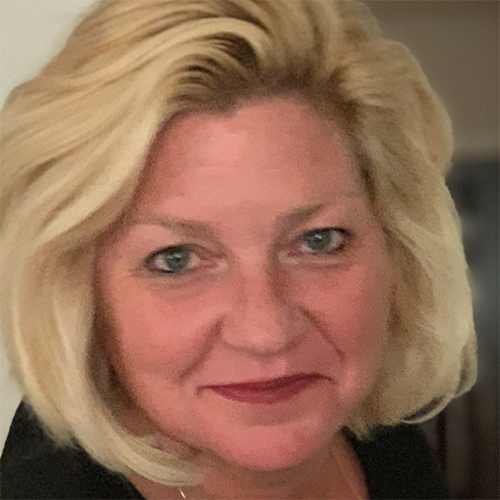
Judy L. Arriaga
Making a REAL Connection with Your Students
Judy L. Arriaga, MBA, has been a Business Operations Analyst (BOA) at Austin Community College since February 2017. Prior to her position as BOA, Judy served as the Student Support Specialist for 3 years for the Competency-Based Education Programs such as Accelerated Programmer Training and Women in IT Programs at Austin Community College. These were grant-based, which required her to maintain a database of over 1,100 students and provide data analytic reports of the program status each semester. In addition to Judy’s experience in higher education, she has 20+ years of working in the private sector where she held positions as Practice Manager, Operations Manager, and Project Manager, which all required her to design and conduct research studies and analyze the outcomes. Ms. Arriaga completed her BBA in Management and MBA at Texas State University and plans to pursue her Ph.D. in Higher Education Administration at the University of Texas at Austin.
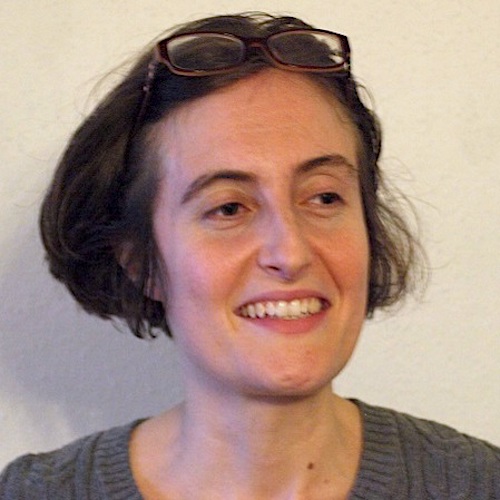
Laura G. Barron
Situational Judgment Tests as Formative and Summative Assessments: How-To Guide for SJT Development
Laura G. Barron holds a Ph.D. and M.A in Industrial and Organizational Psychology from Rice University. She currently works in the Air Education and Training Command (AETC) competencies division, where she conducts enterprise-wide research and assessment to support force development. Current projects include the development of competency-based Situational Judgment Test (SJT) questions for use in the Weighted Airman Promotion System. She previously worked as a Personnel Research Psychologist and Chief of Strategic Research & Assessments at the Air Force Personnel Center (AFPC) supporting the selection and classification of Air Force personnel. Prior to entering public service, she worked as an assistant professor in the University of Wisconsin system. She has authored more than 30 peer-reviewed articles on topics such as job analysis, personnel selection, workplace diversity, and the use of SJTs in training that have been published in journals such as Human Performance, Psychology, Public Policy & Law, Rehabilitation Psychology, and Military Psychology. holds a Ph.D. and M.A in Industrial and Organizational Psychology from Rice University. She currently works in the Air Education and Training Command (AETC) competencies division, where she conducts enterprise-wide research and assessment to support force development. Current projects include the development of competency-based Situational Judgment Test (SJT) questions for use in the Weighted Airman Promotion System. She previously worked as a Personnel Research Psychologist and Chief of Strategic Research & Assessments at the Air Force Personnel Center (AFPC) supporting the selection and classification of Air Force personnel. Prior to entering public service, she worked as an assistant professor in the University of Wisconsin system. She has authored more than 30 peer-reviewed articles on topics such as job analysis, personnel selection, workplace diversity, and the use of SJTs in training that have been published in journals such as Human Performance, Psychology, Public Policy & Law, Rehabilitation Psychology, and Military Psychology.
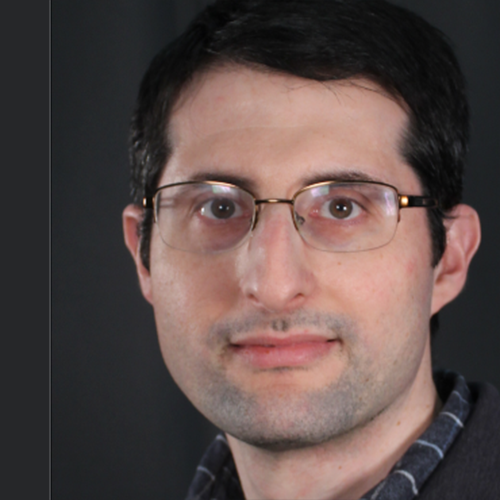
Josh Becker
Lessons Learned: Piloting a competency-based self-directed undergrad course in a traditional term
Joshua Becker is the Information Literacy and Assessment Librarian, and an Associate Professor, at Southern New Hampshire University. Professor Becker is the incoming Christos and Mary Papoutsy Distinguished Chair in Leadership Ethics.
Joshua holds an MSLIS from the University of Illinois and an MAT in English Education from Boston University. His research interests include: Information Ethics, Online Learning, and Universal Design.

Carol Buse
Innovating a Curriculum for Coding and Development
Carol Buse currently serves as dean of STEM at Amarillo College. She previously was chair of the Business Systems and Emerging Technology department at Amarillo College and chair of the Computer Information Systems department at Amarillo College. She has taught courses in Computer Science and Computer Information Systems for over 30 years. She holds a Ph.D. from Colorado State University, an MS from Texas A&M University, and a BBA from Texas A&M University.

Chris Cooper
Lessons Learned: Piloting a competency-based self-directed undergrad course in a traditional term
Chris Cooper has worked at the Shapiro Library since 2005 and in his current role as digital initiatives librarian since 2011. He manages the university’s digital repository, the Academic Archive, and also works with the university’s physical archives. Prior to coming to SNHU, Cooper held positions at Bates College and in the Art History Department at the University of Massachusetts, Amherst.
Cooper majored in Art History and received his Bachelor of Arts from Bates College, his Master of Arts with a 20th Century American and European Art specialization, and his MSLIS from Syracuse University.
Cooper has done presentations including “Current Generation Video Games and Consoles,” “E-Books at the Shapiro Library,” and “Kindles at the Shapiro Library.” He is a member of the American Library Association and New England Library Association.
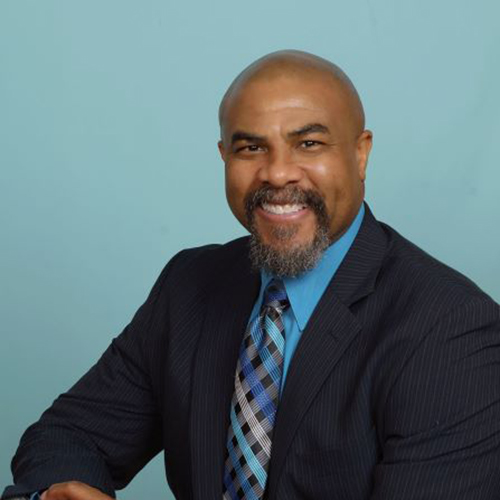
Alan Dixon
Collaborative Program Development in an Inclusive CBE Environment
Dr. W. Alan Dixon, Sr. is currently the Business Department Chair at Marian University. He previously spent 35 years working in Northern California in various retail leadership roles. Dr. Dixon has a great deal of real world experience at many levels.
Dr. Dixon graduated from the University of California Davis with bachelor’s degrees in managerial economics and psychology. He completed his MBA and doctorate in Organizational Leadership at the University of Phoenix receiving the Delta Mu Delta International Business Honor Society award and he is a member of the National Society of Leadership and Success.
His passion is to equip leaders with practical tools to help make them successful. Fueled with a desire for learning, Dr. Dixon continually works to develop organizational leadership programs for secular and ministry use. He also spends his time writing articles and devotions to encourage new leaders.
By using his 35 years of leadership experience, Dr. Dixon wants each new leader to possess the developed skills necessary to win in the workplace and in ministry. He is excited about how training and experience coalesce to help make good leaders great and great leaders extraordinary. Dr. Dixon is the Program Director for the Masters of Science in Management in the CBE Format and continually works to advance the competency skills of leaders in the workplace.
Dr. W. Alan Dixon, Sr.
Business Department Chair, College of the Professions
Associate Professor
Marian University

Brooks Doherty
What do employers think about CBE transcripts?
Brooks Doherty is AVP of Academic Innovation at Rasmussen College and serves on the Competency-Based Education Network (C-BEN) Board of Directors. He is completing a doctorate in education at St. Mary’s University, earned an MA in literature from University College London, and graduated from the University of Minnesota with degrees in Political Science and English. His central areas of interest are competency-based education, developmental education, workforce preparedness, the relationship between liberal learning and professional learning, and Irish literature. Prior to his current work, Doherty taught remedial and college-level writing courses for students of varying disciplines.
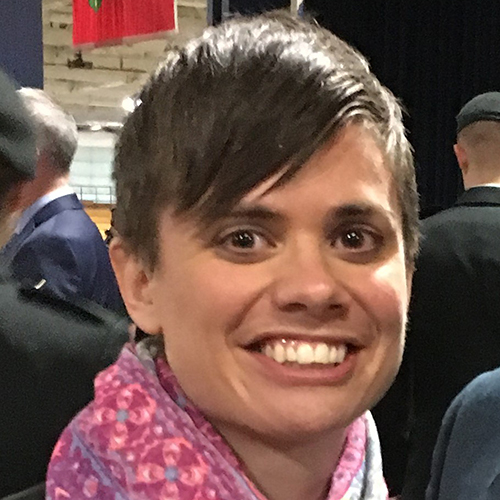
Louise Edwards
Disrupting Traditional Educational Delivery. Bow Valley College’s approach to developing and implementing Competency-Based Education and Authentic Assessment.
Learn from Bow Valley College and Each Other! Implementing Competency-Based Education and Scalable Assessments
Louise Edwards is a Competency-Based Education and Assessment (CBEA) Consultant at Bow Valley College. Prior to this role, Louise’s varied career has spanned academic research, institutional program design and governance, corporate training and, most recently, high school teaching. In her capacity as a CBEA consultant, Louise works with stakeholders both within and outside the College to develop the strategy, processes, guidelines, and tools for competency-based education at Bow Valley College.

ALI ESMAEILI
Dr. Ali Esmaeili is currently serving as the Dean of Math, Science, Bachelor Programs, and University Relations at South Texas College. Since 2008, prior to fulfilling his position as Dean, Dr. Esmaeili served as Campus Administrator, Professional Development Coordinator, Instructional Support Services Coordinator, Division Director, and Associate Dean for Bachelor Programs. He holds an Ed. D. In Education, Master of Education, Master of Science from Texas A&M University-Kingsville. He is one of the founding faculty at the South Texas College. In addition, he is the founding Administrator for the Bachelor Programs at South Texas College. Currently, he is one of the Board Member at the Community College Baccalaureate Association, Former Board Member of Rio Grande Valley Council of Teachers of Mathematics, Former Board Member of South Texas Educational Technology School District, and former Honorary member of National Institute for Staff and Organizational Development. He has presented at several Nationally known conferences such as SACSCOC, League for Innovations, NISOD, CCBA, and many more.

Cherly Gary-Furdge
Dr. Cherly Gary-Furdge is a graduate of Mississippi Valley State University with a Bachelors’ and Masters’ degree in Criminal Justice. She completed her Ph.D. in Sociology from Texas Woman’s University in 2013. Her Dissertation was entitled “Identity Development for Black/White Mixed Raced Couples and their Children. Prior to coming to NCTC, Dr. Furdge worked for the Mississippi Department of Corrections. During her time there, she held the positions of: Drill Instructor, Correctional Officer I, Correctional officer IV and Assistant to the Associate Warden. She also worked as a supervisor with the Denton County Juvenile Detention Center and as a program coordinator for the SAMPET program with the YWCA in Dallas. Dr. Furdge was been employed at North Central Texas College since August of 2000. Currently, she is serving as the Division Chair for Public Administration and Management. In the Fall of 2017, Dr. Furdge along with her faculty conducted an eighteen-month pilot study of Competency Based Education courses at NCTC. They took traditional courses and converted them to the CBE format. Her division was the first to introduce CBE to the North Central Texas College.
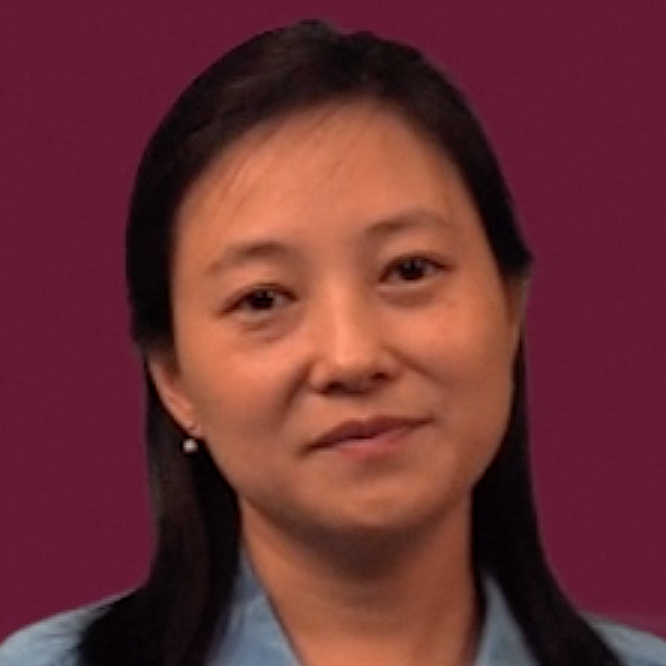
Ninghua Han
Failure to launch: Barriers to developing certificate and degree a subscription-based competency-based education format
Dr. Ninghua Han has been working for Austin Community College for over five years. Dr. Han serves as the lead instructional designer at Distance Education & Alternative division at Austin Community college, where she works closely with departments to design and develop quality online programs. She earned her Master’s degree in Instructional Technology from Central China Normal University and obtained her Doctoral degree in Instructional
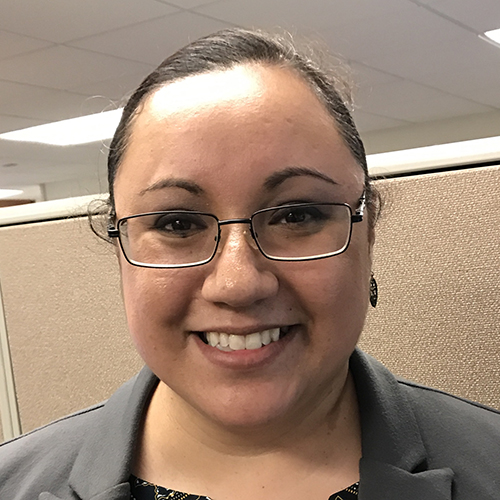
Imelda De Hoyos-Aguilar
Situational Judgment Tests as Formative and Summative Assessments: How-To Guide for SJT Development
Imelda De Hoyos-Aguilar holds a Ph.D. in Leadership Studies and an MBA from Our Lady of the Lake University. She also earned a Master’s degree in Industrial and Organizational Psychology from St Mary’s University in San Antonio, TX. For the last 17 ½ years, she has worked as a civilian employee for the United States Air Force. She spent sixteen years working at the Air Education and Training Command (AETC) on Enlisted Promotion Testing in support of the Weighted Airman Promotion System. She is currently working as a Personnel Research Psychologist at the Air Force Personnel Center (AFPC) supporting Air Force-wide personnel testing, research, operational programs, and policies to select and classify Air Force personnel.
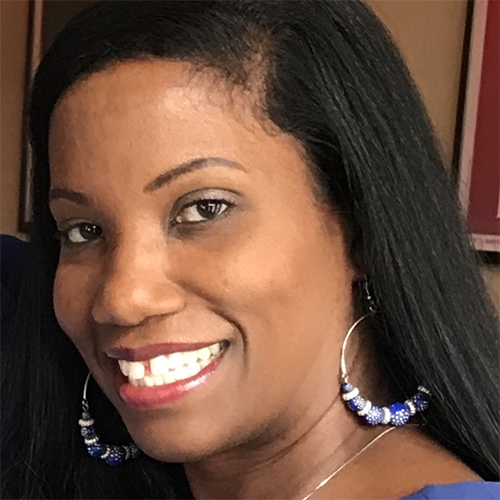
Tesha Graham
The Importance and Necessity of Academic/Success Coaching Within Academia
Tesha Graham is the Student Success Coach for the MyWay Competency-Based Education (CBE) programs at the University of Mary Hardin-Baylor (UMHB). In this role, she coaches students and monitors their progress consistently throughout the duration of their program to promote student success. Additionally, she serves as Adjunct Associate Professor, teaching Learning Framework and Transition to College Success within the Student Development Department at Austin Community College. Ms. Graham has earned an A.A. in Business Administration, a B.S. in Management of Human Resources, and a M.S.Ed. in Leadership for Higher Education. She has 20 years of higher education experience in student services.
Prior to her employment at UMHB, Ms. Graham served as a Guidance Counselor, GoArmyEd Counselor, Coordinator of Transfer Evaluations, and Program Technician, and her background encompasses holistic advising/counseling, student support, and retention. Students are her passion, and she loves helping students succeed.
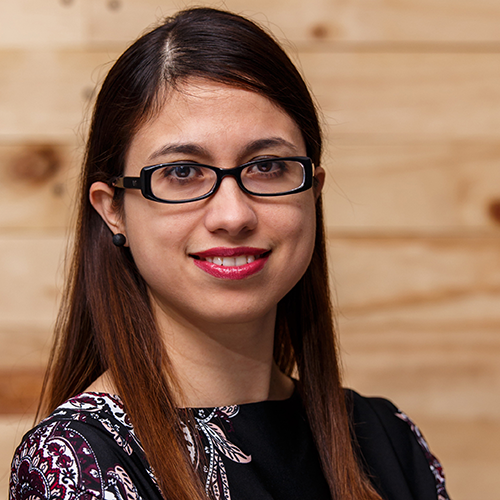
Zeida Guajardo
Master´s in Positive Education: a Competency-Based Curriculum Design
Zeida Guajardo holds a B.A., an M.A., and a PhD in Education. She is certified in positive psychology and positive organizations. She has directed teams of accreditations, curricular and instructional design in different universities. She has served as a teacher at all academic levels. She has participated in research projects and presentations about competency-based education, educational evaluation, citizen education and a gender issues. She has authored two books on intercultural education. She is currently the Head of Competency Evaluation at Universidad Tecmilenio.

Angela J. Hill
The Lamar Institute of Technology Journey of Discovery: Resistance to Action
Dr. Angela J. Hill serves as the Dean of Student and Academic Success, and as Executive Director for the Teaching and Learning Center. Dr. Hill has over 17 years of K-12 and higher education expertise. Skilled in the classroom; she has taught high school and two-year college instruction. Dr. Hill has two bachelor degrees: B.B.A., Management Information Systems and a B.B.A., Finance. Additionally, she holds an MS in Educational Administration and a Ph.D. in Educational Leadership from Hampton University.

Nicholas Hinojosa
Teaching in competency‐based education courses: faculty perspectives
Computer and Information Technologies CBE Course Demonstration
Nicholas Hinojosa serves as an instructor and Assistant Program Chair for the South Texas College Computer Science Department. As a Quality Matters (QM) certified Peer Reviewer, Mr. Hinojosa guides the CS department in developing online courses that adhere to the highest standards. He has an Associate of Science in Mathematics, a Bachelor of Applied Technology in Computer and Information Technologies, a Master of Science in IT, and certifications in networking (Cisco) and cybersecurity (SANS/GIAC). Mr. Hinojosa teaches competency-based education courses on various subjects in computing. Additionally, he has taught online and traditional courses in programming, networking, web development, and database management.

Gena Jean
All roads diverge and converge: Similarities and differences in CBE instruction
Gena Jean, M.Ed.: Gena Jean is the Program Manager for Performance-Based Education at Texas State Technical College and received her Masters of Education in Educational Technology from the University of Texas Rio Grande Valley in 2015. She served as a faculty member and department chair of the Visual Communications department from 2011-2015 before transitioning to Professional Development where she served as a Professional Development Officer for one year before taking on statewide leadership of the team from 2016-2018. Since then, Gena has been focusing on researching and implementing TSTC’s competency-based education initiative: Performance-Based Education (PBE). Her responsibilities include leading a team of curriculum specialists and instructional designers in the curriculum deconstruction and development for the identified pilot programs, as well as ensuring the organizational infrastructure is in place to support the implementation of competency-based education.

Alan Johnson
Collaborative Program Development in an Inclusive CBE Environment
Alan Johnson, J.D.
Assistant Professor
Director of Criminal Justice and Homeland Security
Marian University

Roberto Juarez-Garza
CBE on the field: a skillset for the sports industry
Roberto is a driven professional with a passion for innovation in education and communications, currently designing the future of higher education in Mexico. He is the Director for CBE implementation in Universidad Tecmilenio (both in undergraduate and graduate levels), a Mexican nationwide university established in 2002 with 29 campuses, an accomplished online operation, and 60K+ students strong. Roberto has some academic experience at the University of Washington and an additional background in education policy/advocacy.

Joann Kozyrev
Drive Change: A Team, A Plan, A Project
Joann Kozyrev is Vice President of Design and Development at nonprofit Western Governors University (WGU). She is responsible for leading WGU’s team of curriculum specialists, instructional designers, assessments experts, and content creators and curators. She leads the strategic alignment of instructional and assessment design best practices to ensure that every WGU student has an engaging learning experience. Prior to joining WGU, Kozyrev was the Executive Director of Learning Innovation for the University of Texas System. While there, instrumental in developing the curriculum team to design high-impact programs and technologically enhanced learning experiences. Kozyrev earned her master’s degree from Penn State University and her bachelor’s degree from Juniata College in Pennsylvania.
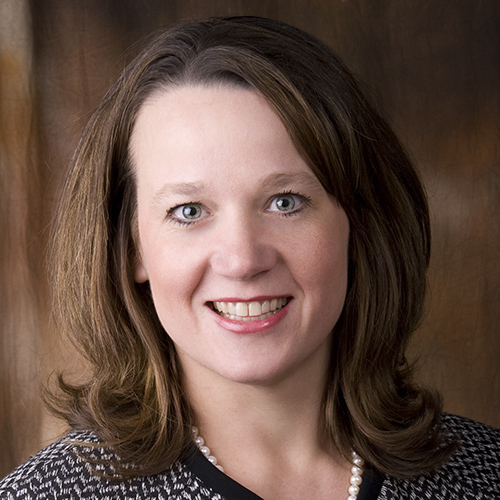
Charla Long
CBE: Don’t Go it Alone!
Long is the Executive Director for the Competency-Based Education Network, a national consortium of higher education institutions and statewide systems seeking to design, develop, and scale new models of student learning. Additionally, she leads C-BEN’s Consulting Services, which is dedicated to helping institutions with competency-based learning. In 2016, Long was recognized by The Chronicle of Higher Education as one of the Top 10 Most Influential People in Higher Education for her work in competency-based education. Long is co-author of The Leader’s Guide to Competency-Based Education.
During 2015, she served as a consultant to Public Agenda on two significant CBE national landscape and field-building projects, funded by both the Bill & Melinda Gates Foundation and Lumina Foundation. In this role, she provided insights, tools, and support to individuals and institutions seeking to advance competency-based education in the United States. These tools included the CBE Ecosystem Framework, the Shared Design Elements and Emerging Practices Model and Research Report, and the CBExchange conference where hundreds of institutions learned how to build high-quality CBE programs. Prior to this,
Long was the founding dean of the College of Professional Studies at Lipscomb University and the creator of their nationally acclaimed competency-based education (CBE) model and badging ecosystem. Long has over 20 years of higher education experience at both public and private institutions in the United States.
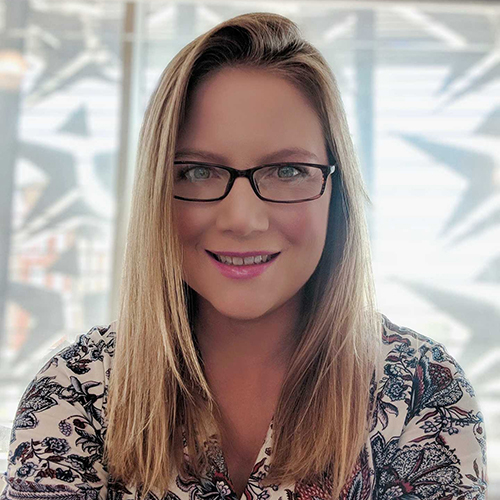
Stephanie Long
Applying the CBE Model for Online Student Success
Stephanie Long is an Associate Professor of GIS for Austin Community College, where she teaches on-campus and distance learning courses utilizing the CBE model. Recently the Geography Department of Texas State University presented Stephanie with the Mary Beth Booth Award for Outstanding Service by an Extramural Educator in recognition of her history in preparing students for success. Stephanie was also spotlighted by Austin Community College for her work developing online GIS courses and was announced as ACC eFaculty of the Year for 2020. Stephanie Long was recently the GIS Systems Coordinator for Texas Parks and Wildlife within the IT Division of their Headquarters Building located in Austin, Texas. Here she led a team of GIS Support and Service professionals for over 300 users across the state. She has taught college courses for several counties and districts since 2008, including the subject matters of World Geography, Physical Geography, Cultural Geography, Introduction to GIS, and Raster Analysis with GIS. Formerly, her work has taken her from the heat of the Mojave Desert to the cold of a blizzard in Wyoming. Her presentations at professional conferences have covered topics such as “Python as a GIS Intern” and “The Application of GIS in the Environmental Impact Analysis of Transmission Line Routing” and “What’s New in Automating GIS Workflows” and “Programming with GIS?! Yes You Can!” and “Designing and Implementing a CBE Pilot Program: Challenges, Benefits and Lessons Learned”. Stephanie Long holds a Master of Science in Geography from Texas State University in San Marcos and she has over 15 years of experience as a GIS professional in the public and private sectors.

Andy Lynch
Lessons Learned: Piloting a competency-based self-directed undergrad course in a traditional term
Dr. Lynch currently serves as the Co-chair of the Sport, Marketing, and Hospitality Management Department at Southern New Hampshire University (SNHU). His roles at SNHU have included Marketing Professor, Marketing Department Chair, Associate Dean of the School of Business for Innovation and Quality, and Director of the Center for Teaching and Learning. Following a professional career in advertising and intercollegiate athletics, Dr. Lynch focused early on research lines that included higher education marketing strategy and marketing communication impact on prospective students. In recent years, Dr. Lynch’s research has focused on pedagogical experimentation in the areas of competency-based education and self-directed learning in business education disciplines. Prior to his stint at SNHU that began in 2007, Dr. Lynch was an Assistant Professor at the American University of Sharjah in the United Arab Emirates.
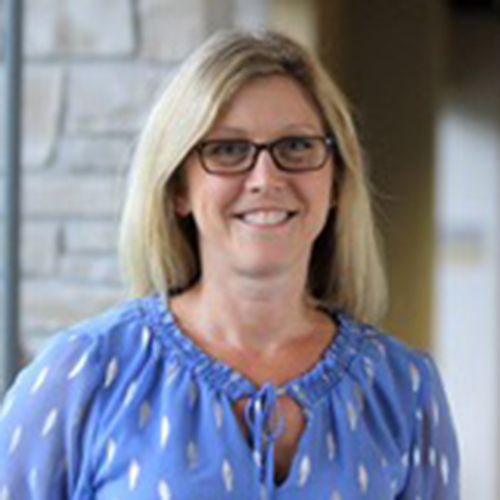
Polly Manske
Collaborative Program Development in an Inclusive CBE Environment
Polly Manske is an Assistant Professor at Marian University in the Department of Teacher Education. She has previous experience in K-12 as both a special educator as well as a reading specialist. Polly is currently a doctoral student, studying curriculum and instruction leadership. Exploring opportunities for inclusivity in education is the primary focus of her ongoing research and studies. She is passionate about creating opportunities for all students to be successful in today’s fast-paced world by focusing on designing dynamic curriculum that meets the needs of individual learners.
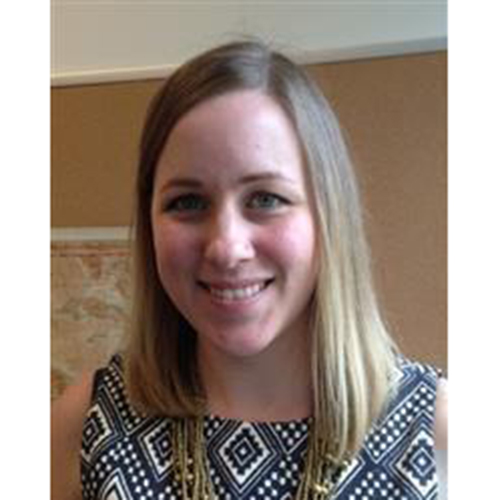
Jessica Mason
State of the Field: Findings from the 2019 National Survey of Postsecondary Competency-Based Education
Jessica Mason, Ph.D. is a researcher at AIR with expertise in postsecondary student success and college readiness. Her current areas of focus include college and career readiness and success, postsecondary competency-based education, and institutional transformation. She has expertise in qualitative and quantitative methodologies, and is currently serving as Project Director for a Lumina Foundation funded study aimed at improving student veterans’ experiences with having their learning recognized by postsecondary institutions, and as co-Project Director for a Lumina Foundation funded effort to build evidence about the scale of adoption of CBE and build the research base about CBE programs. She is also co-project director on the Bill and Melinda Gates Foundation funded evaluation of the Frontier Set (formerly Institutional Partners Network), which includes 31 leading institutions simultaneously implementing a variety of student success interventions. She received her Ph.D. in social and comparative analysis in education from the University of Pittsburgh.
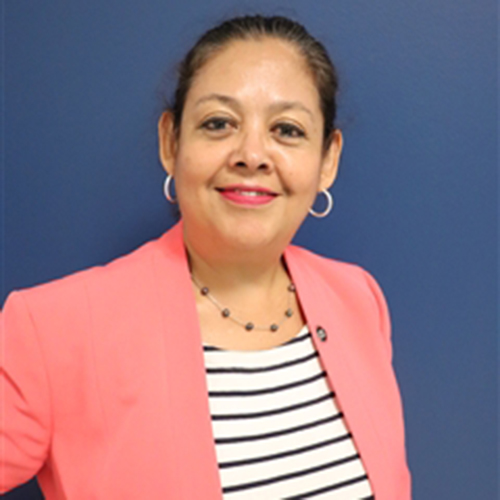
Emma L. Miller
All roads diverge and converge: Similarities and differences in CBE instruction
Using the Comprehensive Learner Record to Demonstrate Competencies Learned
Dr. Emma L. Miller has been in higher education administration in the state of Texas for over 25 years. She has a Ph.D. in Applied Management and Decision Science with a concentration in Leadership and Organizational Change from Walden University. Currently, Dr. Miller is Assistant Dean of Bachelor programs as well as the Program Chair for the Competency-Based Education Bachelor of Applied Science in Organizational Leadership program at South Texas College. As a researcher, she has focused on mentoring and Competency-Based Education (CBE). Dr. Miller also began serving as Board Member of the national organization Competency-Based Education Network (C-BEN) fall of 2019.
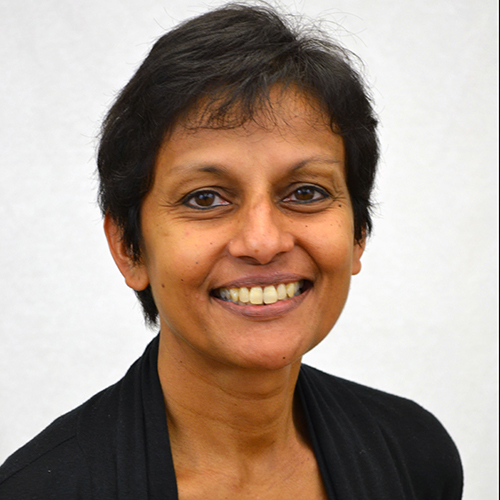
Rita Mitra
Faculty-Student Online Interaction: Tools and Techniques
Dr. Rita Mitra is an Associate Professor in Practice in the Information Systems and Cyber Security Department and the Director of Online Programs in the College of Business at The University of Texas at San Antonio (UTSA). She teaches computer science and cybersecurity courses and manages the design and development of the UTSA’s undergraduate and graduate programs at UTSA. She became introduced to FTTS from her role as learning architect with the Institution of Transformational Learning at UT System. A focus of Dr. Mitra’s work revolves around identifying gaps, and testing, training, prototyping, and curating competency-based labs and exercises, which she believes are the cornerstone of the curriculum.
Prior to her technology career, Dr. Mitra was a classical pianist, violinist, and educator for many years before starting a second career in computer science and cybersecurity. She finds it a privilege to work and learn alongside her students, to impart an artistic, creative, and improvisational mindset, and to foster an attitude of immediacy towards today’s security challenges.

Kerry Mix
The Lamar Institute of Technology Journey of Discovery: Resistance to Action
Kerry Keith Mix, Executive Vice President, and Provost at Lamar Institute of Technology, is a proud graduate of a Texas community college and was grateful to teach in the program from which he graduated. He has nearly two decades of higher education experience. Dr. Mix has earned an A.A.S., B.A.A.S., and M.Ed. in his educational journey. His Ph.D. is from The University of Texas at Austin’s Community College Leadership Program.

Saeed Molki
Teaching in competency‐based education courses: faculty perspectives
Computer and Information Technologies CBE Course Demonstration
Professor Saeed Molki was involved in the development of several degrees at South Texas College, such as the Bachelor of Applied Technology in Computer & Information Technologies (BAT-CITP) in 2008, and founder of the Computer Science (CS) Department since 1997. Professor Molki serves as the Program Chair and immediate supervisor for all CS and BAT-CITP faculty/staff. He provides district-wide leadership for planning, development, evaluations, and improvement of instruction for the department to ensure the success, retention, and graduation of the students in his programs.

Michael Moore
Activate, Cultivate and Orchestrate change momentum among faculty and students for a shift to CBE
Michael holds a master’s degree in Computer Information Systems and a bachelor’s degree in Accounting. He has worked extensively in the software industry with over 20+ years of experience managing and manipulating data and customizing software. Prior to D2L, he was a D2L higher education client for three years and managed the Analytics implementation at Daytona State College during that time. Mike is particularly interested in the effective integration of educational technology tools into the online teaching environment and the classroom.

Mark Nair
Innovating a Curriculum for Coding and Development
Mark Nair is the chair of Business Systems and Emerging Technology at Amarillo College where he teaches economics and technology. He has spent more than 20 years building digital platforms that handle digital content, rights management, and digital distribution. He has an extensive patent portfolio on a variety of innovative technologies. As president of Redigi, Inc, he built the world’s first used digital marketplace with blockchain and crypto tokens and currencies. He is a senior member of the National Academy of Inventors, a founding business mentor for the Texas Tech Innovation Hub, and a National Science Foundation iCorp mentor. Mark has his undergraduate and Master’s degree from Texas A&M University and attended law school at the University of Texas School of Law.
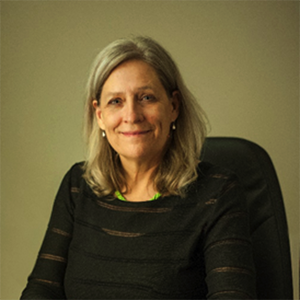
Myshie M. Pagel
CBE Course Design – Constructing the Blueprint
Dr. Myshie Pagel has worked in higher education for over 20 years as a faculty member and administrator. Her areas of interest include faculty/ student engagement, student access to viable educational pathways for students. She currently serves as the Dean of Education and CTE at the Valle Verde campus of El Paso Community College and leads the development team for CBE at EPCC.
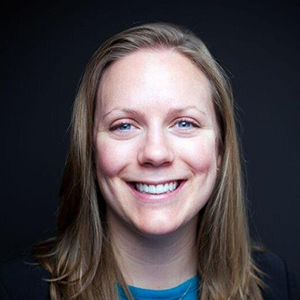
Kelle Parsons
State of the Field: Findings from the 2019 National Survey of Postsecondary Competency-Based Education
Kelle Parsons is a senior researcher at the American Institutes for Research with experience in higher and postsecondary education research, policy, and administration roles. She currently directs projects related to evaluating postsecondary student success initiatives, organizational change in postsecondary settings, postsecondary models of competency-based education, and state higher education systems. Prior to joining AIR, she served as a policy analyst at the National Governors Association, providing technical assistance to state policymakers around postsecondary issues including using common performance metrics, aligning postsecondary financing policies, and addressing system governance issues. Previously, she worked in institutional administration and research roles at the University of Michigan. She holds master’s degrees in public policy and higher education from the University of Michigan.

Kevin Peek
Multi-Institutional Collaboration and Mentoring to Develop and Implement Successful CBE Programs
Dr. Kevin Peek earned his Ph.D. in May of 2000. He has taught full-time at the University of Nevada, Vista College, North Western Michigan College, the Victoria College, and South Texas College. His experience with competency-based (CB) program development and administration includes two-years as the Chair of the CB Bachelors Program in Organizational Leadership at STC; Project Director of two TAB Extension Grants to create CB Bachelor’s Programs in Computer Information Technology and in Medical and Health Service Management; Project Director to create a CB Professional Certificate Program in Accounting; Project Director of a SACSCOC LUMINA Grant to create a CB Bachelor’s Program in Technology Management; and Collaborative work with colleges and universities, including UTRGV, Nichols College, and Austin Community College to develop CBE bachelor’s programs. Most recently, he is planning four regional symposiums on CBE and has written a handbook on CBE program development and implementation.
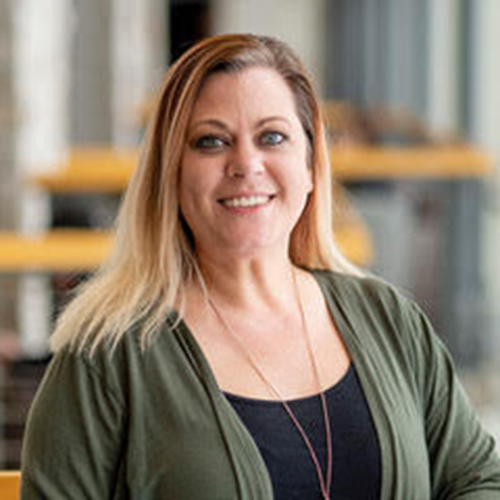
Gina Possin
Collaborative Program Development in an Inclusive CBE Environment
Gina Possin is an Assistant Professor of Psychology and the Program Director of the Industrial Organizational (I/O) Psychology Master’s Program at Marian University. She has previous management experience in the Auto Industry. Gina is currently finishing her doctoral degree, exploring the effects of extracurricular involvement in sports on organizational commitment. Her passion in future research is exploring the effects of childhood development on workplace behaviors. She earned her Master’s degree in I/O Psychology at the University of Central Florida. Gina has been excited about the development of the I/O Psychology Master’s Program at Marian because it parallels I/O Psychology practices of competency modeling, formative and summative assessments, and frequent, constructive feedback with competency-based education curriculum development that is inclusive and meets the needs of today’s diverse learners.
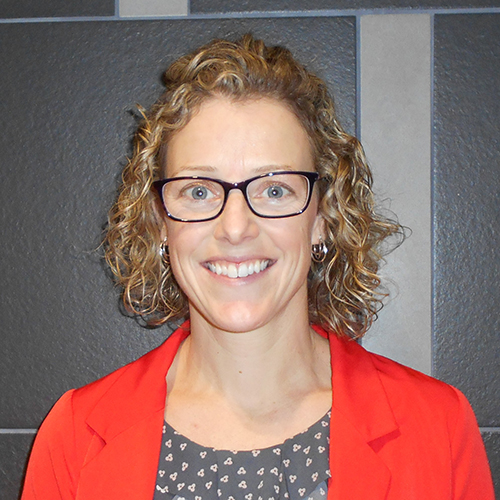
Angela Ripley
Disrupting Traditional Educational Delivery. Bow Valley College’s approach to developing and implementing Competency-Based Education and Authentic Assessment.
Learn from Bow Valley College and Each Other! Implementing Competency-Based Education and Scalable Assessments
Angela Ripley is a Competency-Based Education (CBE) and Assessment (CBEA) Consultant, a newly-created position to drive CBE initiatives at Bow Valley College. Angela comes to Bow Valley College as a former educator, learning development manager, and reviewer of competency-based education programs. Angela’s role is to provide the necessary framework, guidelines, strategy, vision, and initiative to promote, socialize, and grow competency-based education and micro-credential frameworks at Bow Valley College.
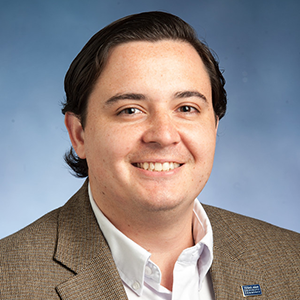
Carlos Rivers
ROI of CBE
Digital Marketing Strategies for Recruiting Adult Learners
Carlos Rivers serves as the Operations Research Analyst of the Institute for Competency Based Education at Texas A&M University-Commerce. Rivers is considered a subject matter expert in competency-based data analytics and has spoken on the subject at numerous conferences at both the state and national level. He has also assisted other universities in the development and implementation of their own CBE programs. Rivers serves on the National Advisory Board for Postsecondary CBE and CBL. His publications on CBE have appeared in such venues as The Journal of Competency-Based Education, EDUCAUSE Review, WCET Frontiers and The Evolllution.
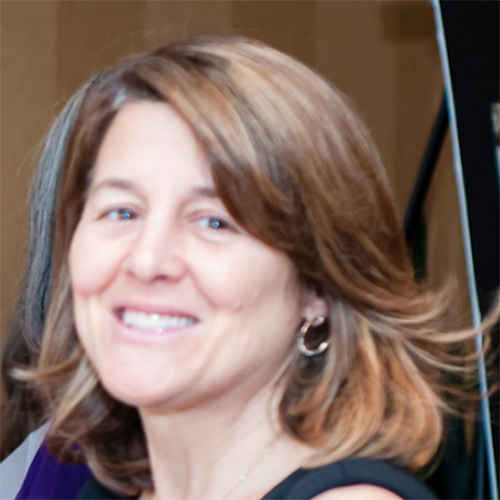
Ann Pamela Saez
Addressing the Critical Need for Digital Fluency Skills to Meet Today’s Workforce Demands
Ann Pamela Saez is the Director of Digital Skills for Today’s Jobs, a comprehensive, employment-search training hub operating within Austin Community College’s Career Services Unit. The program assists a highly diversified student body to utilize industry language to identify skills gaps, build, refine, and communicate skills to employers seeking talent. With an aim toward bolstering populations facing barriers to social mobility, and a means for prioritizing intentional career services into the experience of students, Digital Skills for Today’s Jobs aims to boost career trajectories for the unemployed, underemployed and incumbent worker. Prior to her work with the Digital Skills program, Pamela was the Director of ACC’s Back to Work 50+ program funded by AARP Foundation through the Social Innovation Fund. The program brought to light the intense need for digital fluency to succeed in today’s competitive job market.

Leila Samii
Lessons Learned: Piloting a competency-based self-directed undergrad course in a traditional term
My professional experience has been in training academics and professionals in digital marketing and social media marketing. In academia, my experience ranges from teaching, research, and course development in digital marketing, international business, marketing, social media, and information technology. With the evolution of higher ed, my teaching has provided me with experiences in face-to-face and online delivery methods both synchronous and asynchronous formats. Further, I have consulted for SMEs and non-profits to bridge the gap between their marketing strategies and their social media strategy through data analysis.
My research focus is primarily on global social media marketing. My doctorate in International Business with a specialization in marketing and my passion for social media has provided me with a dynamic approach to social media research through an international lens.

Craig Schieber
The Times Demand Autonomous Learners and Competency-based Education Delivers
Craig Schieber has built a reputation as an innovator and leader of change in education. His work has focused on building student agency, project-based learning, inquiry learning, and personalizing the educational experience. Current efforts focus on development of competency-based education and the many aspects of teaching that are encompassed in this historical shift in education pedagogy. He has recently begun dialog about these topics at several international conferences. In addition, he coaches doctoral students at City University of Seattle. Craig’s doctoral work at Seattle Pacific University was on How Technology is Influencing Education. Awards include: White House Presidential Teacher’s Award, Who’s Who in American Schools, and The Golden Acorn Award.
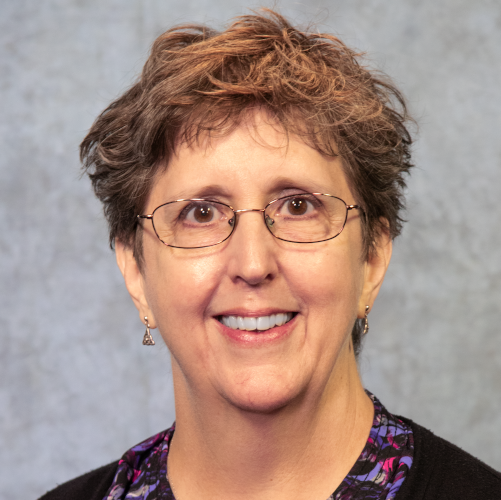
Laura Sheehy
Clarifying Assessment Expectations with Rubrics
Laura Sheehy is the Faculty Development Specialist for the Online Programs Department at the College of Business at the University of Texas at San Antonio. Ms. Sheehy assists faculty with all things Blackboard, course design, and training. Prior to coming to the College of Business, she was an Instructional Designer and Support Lead for Digital Learning at UTSA. She was responsible for Blackboard support for faculty, staff, and students and for planning and delivering all Blackboard training for faculty. Prior to returning to her home state of Texas, Ms. Sheehy spent over nine years in Arizona with K-20 teachers and students integrating technology into the classroom and, in that role presented at a variety of state and national conferences. Ms. Sheehy thrives on sharing knowledge and helping others use that knowledge to make educators’ lives easier.
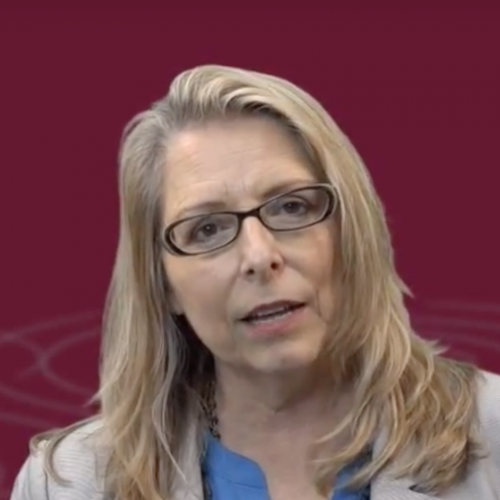
Linda Smarzik
Linda Smarzik, Dean of Computer Science and Information Technology with Austin Community College District (ACC) oversees the departments of Computer Science and Computer Information Technology. Her scope of influence encompasses initiatives such as the successful Accelerated Programmer Training program, a Competency-Based Education, distance-learning, program that accelerates a student through a certificate in programming, and then ultimately a two-year degree. In 2015 she led a Gates Foundation grant to launch Women in IT, a program at ACC boosting equitable representation of women in the field of information technology. Currently, Linda is the lead for a Department of Labor, Texas is IT grant focused on building IT apprenticeships in the Central Texas area. In addition, she led a team through the successful approval process for ACC’s second four-year degree. Her division will now offer a Bachelor of Applied Science in Software Development that will be launched to 60 students in Fall 2020. Finally, Linda is leading a team to build a short-term certificate for Digital Fluency Skills designed to build digital workforce competencies that enables career elasticity within today’s digital workforce. Prior to joining ACC, Linda was Vice President/Creative Director for a local advertising and marketing firm. Linda is the author of “The Mind of Thuse” summarizing her years of teaching and research in cognitive neuroscience when applied to the process of creativity.
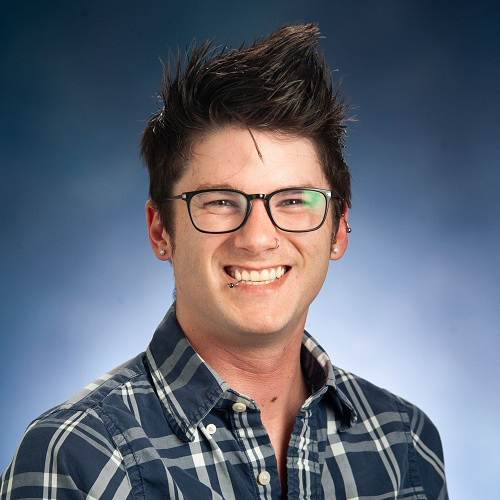
George Swindell
All roads diverge and converge: Similarities and differences in CBE instruction
George Swindell is a Faculty member for the Texas A&M University-Commerce TAB CBE Organizational Leadership program. George has a M.S. in Applied Mathematics and another in Clinical Psychology. He has been teaching Math and Psychology for over seven years. George has been working with the TAB CBE Organizational Leadership program since 2014 teaching Math and Psychology core curriculum.
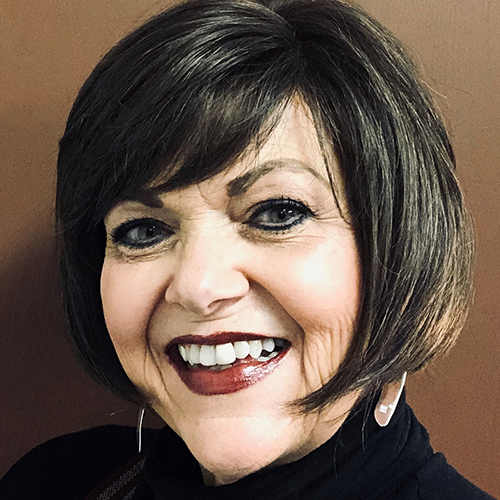
Diane Tompkins
Blended Pathways: Outcomes of Faculty Training and Mentoring in Developing Accelerated Pathways
Diane Tompkins’ passion in championing growth and development for professionals is evidenced in over twenty-five years of leading competency training and professional development efforts. More than four years ago she began creating professional development opportunities for faculty, staff and administrators at Institutions of Higher Education in Texas to advance their knowledge, skills, and engagement in developing accelerated pathways towards student completion of certificates. Diane has managed or coordinated grant-funded projects that provided hands-on opportunities for faculty, culminating in multiple accelerated pathways in Career and Technical Education programs of study to award credit for third-party industry certification. Additionally, she led the efforts of Eastfield College’s selection and participation in the 2019 CAEL-WICHE Prior Learning Assessment Impact Study. She holds a Master’s Degree in Human Relations and Business, as well as a Master’s level specialty certificate in Adult Training and Development.

Tricia Thomas-Anderson
Investing in Faculty for the Future: Evaluating Competencies for Accelerated Pathways
Blended Pathways: Outcomes of Faculty Training and Mentoring in Developing Accelerated Pathways
With over 20 years of higher education experience, Tricia Thomas-Anderson has valued involvement in opportunities for growth and development among community colleges in student services, continuing education, and resource development beyond traditional expectations of two-year institutions. As a result, for the past five years, Tricia has led the institution in reviewing the value and enhancement of accelerated pathways that engage and train faculty in supporting 21st-century post-secondary initiatives.
Tricia has managed and overseen several projects focused on experiential learning and faculty and staff training in support of students entering college with aligning competencies. Tricia also worked with SACSCOC through the “Connecting Credentials” project resulting in the development of enhanced policies and procedures at the institution to meet accrediting standards for awarding credit for experiential learning.
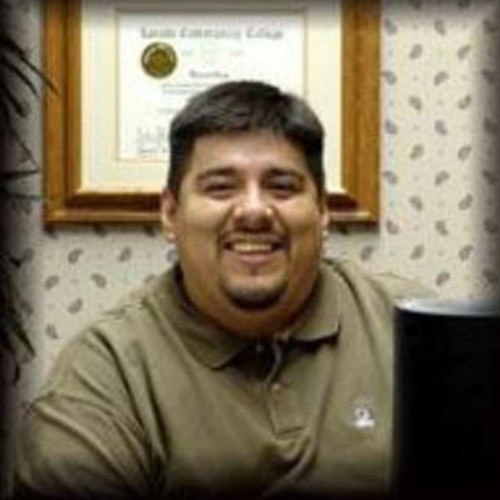
Gabriel Viera
Teaching in competency‐based education courses: faculty perspectives
Computer and Information Technologies CBE Course Demonstration
Gabriel A. Viera serves as an instructor for the Computer Science Department at South Texas College Computer Science Department for over 20 years. He has a Bachelor of Business Administration with a Concentration in Management, Master of Science in Information Systems and certifications in CompTIA A+ and CIW (Certified Internet Webmaster) Associate. Throughout the years, he has taught online and traditional courses in computing, web development and programming and assisted with the development of the Bachelor of Applied Technology in Computer & Information Technologies (BAT-CITP).
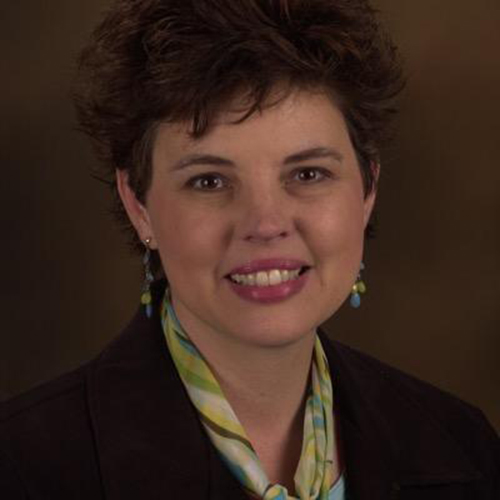
Susan Wegmann
All roads diverge and converge: Similarities and differences in CBE instruction
Dr. Susan Wegmann is the Associate Dean of Digital Learning and Innovation at the University of Mary Hardin-Baylor where she directs three CBE programs: Organizational Leadership, RN to BSN, and an Alternative to Teacher Certification. She has taught online for 20 years, and she serves on the review board for the CBEN framework assessment review team. Since joining the UMHB faculty, she has been actively engaged in CBE program and course development and revision, faculty enhancement, and curricular assessment. She is also the institutional Assessment Coordinator for SACSCOC.
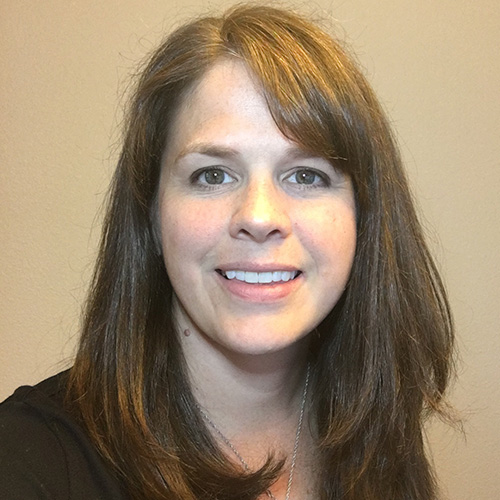
Holly Whitaker
Activate, Cultivate and Orchestrate change momentum among faculty and students for a shift to CBE
Holly Whitaker is a Learning Strategy Consultant at D2L. Her work unleashes capacity between human systems and technology. Her expertise is strategic transformation of technologies & pedagogies. She earned her Ph.D. in Agricultural Leadership, Education and Communications from Texas A&M in 2012 and holds master’s degrees in education and theology.
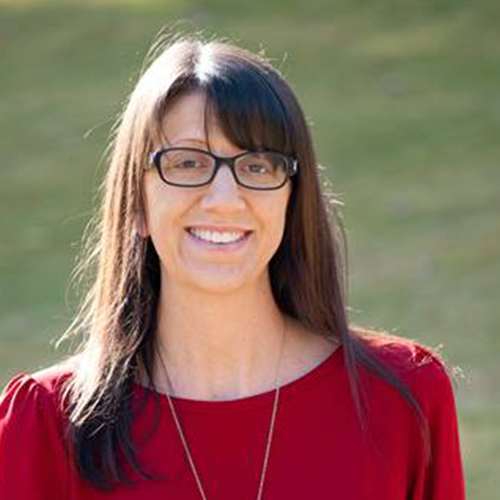
Alison Winzeler
Activate, Cultivate and Orchestrate change momentum among faculty and students for a shift to CBE
Dr. Alison Winzeler is the Alternative Licensure Director for NC State’s College of Education and the Director of Pathway to Practice, a competency-based teacher licensure program that serves over 35 districts in North Carolina. For the past twelve years, she has served as program director for NC TEACH, a face-to-face teacher preparation program. Dr. Winzeler is a former high school English teacher and most interested in innovative course design and delivery for new teacher preparation. Specifically, she is interested in supporting teachers that work in more geographically remote areas who have limited opportunities to engage in traditional teacher professional development. She obtained her doctorate in Educational Evaluation and Policy Analysis from NC State. She earned her Master’s degree in Secondary English Education from Wake Forest University and her B.A. in Literature and Education from the University of North Carolina at Asheville.
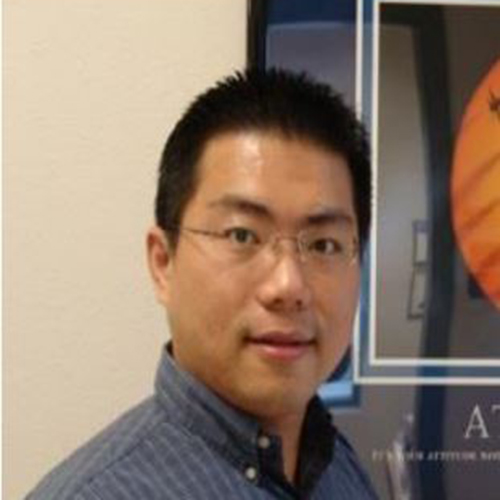
Meng-Hung Wu
Teaching in competency‐based education courses: faculty perspectives
Computer and Information Technologies CBE Course Demonstration
Dr. Meng-Hung Wu serves as an assistant professor for the Computer Science Department. He holds a Doctorate in Computer Sciences. He has both Online and traditional classroom experience at the undergraduate and graduate levels. He has been teaching in the college and university settings for the past 11 years. He is very passionate about Online and Competency-based learning.


Kevin Struckhoff


